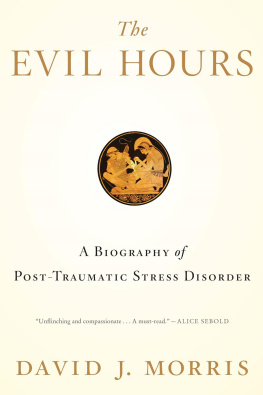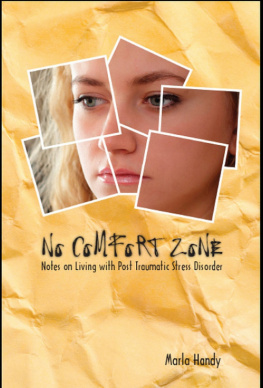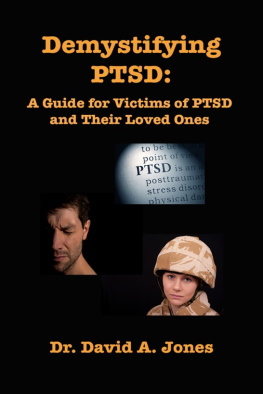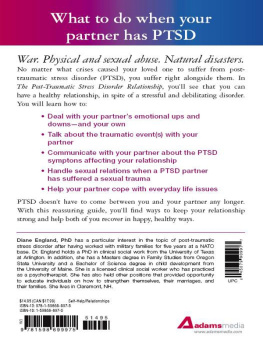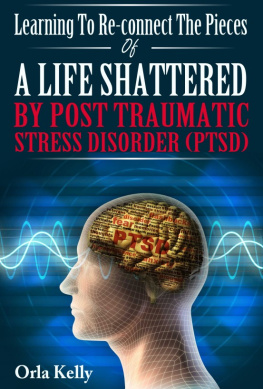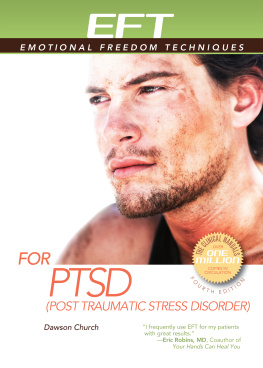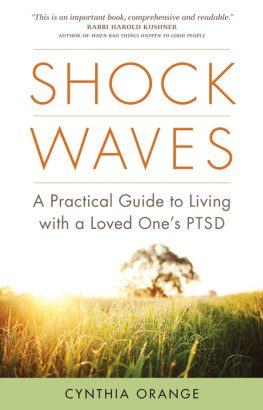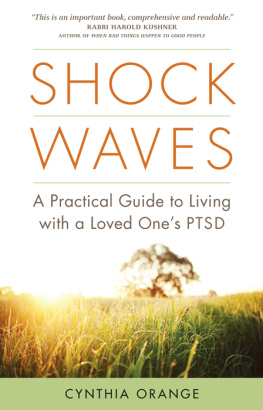Copyright 2015 by David J. Morris
All rights reserved
For information about permission to reproduce selections from this book, write to Permissions, Houghton Mifflin Harcourt Publishing Company, 215 Park Avenue South, New York, New York 10003.
www.hmhco.com
The Library of Congress has cataloged the print edition as follows:
Morris, David J., date.
The evil hours : a biography of posttraumatic stress disorder / David J. Morris.
pages cm
An Eamon Dolan Book.
ISBN 978-0-544-08661-6 (hardback) ISBN 978-0-544-57032-0 (trade paper) ISBN 978-0-544-08449-0 (ebook)
1. Post-traumatic stress disorderUnited States. 2. Post-traumatic stress disorderPatientsUnited StatesBiography. 3. Morris, David J., date.Mental health. I. Title.
RC 552. P 67 M 68 2015
616.85'21dc23
2014034487
v1.0115
Heraclituss Fragment 62 is from Fragments: The Collected Wisdom of Heraclitus by Heraclitus, translated by Brooks Haxton, translation copyright 2001 by Brooks Haxton. Used by permission of Viking Penguin, a division of Penguin Group (USA) LLC.
This book presents the research and ideas of its author. It is not intended to be a substitute for consultation with a mental health professional. The publisher and the author disclaim responsibility for any adverse effects resulting directly or indirectly from information contained in this book.
This book is not affiliated with or endorsed by the Department of Defense or other instrumentality of the United States.
How many a brief bombardment had its long-delayed after-effect in the minds of these survivors, many of whom had looked at their companions and laughed while inferno did its best to destroy them. Not then was their evil hour; but now; now, in the sweating suffocation of nightmare, in paralysis of limbs, in the stammering of dislocated speech. Worst of all, in the disintegration of those qualities through which they had been so gallant and selfless and uncomplainingthis, in the finer types of men, was the unspeakable tragedy of shell shock... In the name of civilization these soldiers had been martyred, and it remained for civilization to prove that their martyrdom wasnt a dirty swindle.
SIEGFRIED SASSOON
A modern disease, as it is comprehended in a laboratory, is explained to the laboratory technician, the student, and the layman as a phenomenon made up of its own pimples, rash, swelling and development. The disease is never presented as a creaturereal or metaphoricala creature that might have an existence separate from its description, even as you and I have an existence from the fact that we weigh so many pounds and stand so many inches tall.
NORMAN MAILER
Authors Note
Out of respect for their privacy, I have changed the names of some of the people who appear in these pages.
Prologue: The Warning
Have you ever been blown up before, sir?
Everything was fine until it wasnt.
Apophenia: finding patterns where there shouldnt be patterns.
These were the words I wrote in my journal on October 9, 2007, the day before I was almost killed by a roadside bomb in Baghdad. The last line I wrote in the days afterward. Later, I went back and underlined it in a different colored ink, as if to emphasize that I had come back to it in a different state of mind. As if I were leaving a clue for some future version of myself.
I was in Iraq for my third reporting trip and had gone out on a patrol with some soldiers from the First Infantry Division into Saydia, a neighborhood that seemed, at least on the surface, to be relatively peaceful. On our way back inside the wire, one of the soldiers asked nonchalantly if Id ever been blown up before. I considered the question for a moment, and then, as the silence deepened, I sensed that something was amiss. The words came awkwardly as I explained that while I had spent the summer before in Ramadi, at that point the deadliest city in Iraq, I was still a virgin in that particular area.
It was like my fate had been spoken: I had never been blown up before, but everyone in the Humvee knew that was about to change.
According to the laws of grunt superstition, I was the injured party, but somehow I managed to feel bad for the kid whod asked the question. As it happened, the soldiers in the Humvee were from all over Latin AmericaPeru, Mexico, Guatemalaand they began pummeling him in a variety of languages and accents for what hed done.
At the time, I felt embarrassed more than anything else and just wanted the moment to end. I didnt like being the topic of conversation, and it took everything I had to avoid thinking about being blown into tiny red pieces. This, in fact, was one of the first head tricks Id learned in Iraq, to systematically ignore the obvious: you were always just about to dieget over it. I was wasted, too, and my mind wasnt right. I had been in Iraq for a total of nine months by this point, and even though I had seen people killed by roadside bombs, Id never been hit myself, and somehow Id come to feel that I had my luck under control. But in posing the question, it was as if the soldier had stolen that control, thrown me over to the forces of chance that I had worked so hard to insulate myself from.
Later, I interviewed a prominent psychoanalyst, who told me that trauma destroys the fabric of time. In normal time, you move from one moment to the next, sunrise to sunset, birth to death. After trauma, you may move in circles, find yourself being sucked backwards into an eddy, or bouncing about like a rubber ball from now to then and back again. August is June, June is December. What time is it? Guess again. In the traumatic universe, the basic laws of matter are suspended: ceiling fans can be helicopters, car exhaust can be mustard gas.
Another odd feature of traumatic time is that it doesnt just destroy the flow of the present into the future, it corrodes everything that came before, eating at moments and people from your previous life, until you cant remember why any of them mattered.
What I previously found inconceivable is now inescapable: I have been blown up so many times in my mind that it is impossible to imagine a version of myself that has not been blown up. The man on the other side of the soldiers question is not me. In fact, he never existed.
The war is gone now, but the event remains, the happening that nearly erased the life to come and thus erased the life that came before. The soldiers question hangs in the air the way it always has. The way it always will.
Have you ever been blown up before, sir?
Introduction
Over the past four decades, post-traumatic stress disorder has permeated every corner of our culture. A condition that went unacknowledged for millennia, and began its public life with a handful of disgruntled Vietnam veterans rapping in the offices of an antiwar group in midtown Manhattan in December 1970, has spread to every nation on the globe, becoming in the words of one medical anthropologist a kind of psychiatric Esperanto. A species of pain that went unnamed for most of human history, PTSD is now the fourth most common psychiatric disorder in the United States. According to the latest estimates, nearly 8 percent of all Americanstwenty-eight million peoplewill suffer from post-traumatic stress at some point in their lives. According to the Veterans Administration, which spends more annually on PTSD research and treatment than any organization in the world, PTSD is the number one health concern of American military veterans, regardless of when they served. In 2012, the federal government spent three billion dollars on PTSD treatment for veterans, a figure that doesnt include the billions in PTSD disability payments made every year to former servicemembers.
Next page
